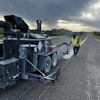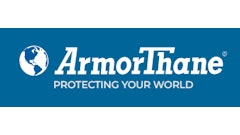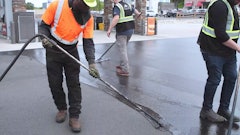A change in the regulatory environment in which sealcoating contractors conduct their business has lead the industry's coal tar sealer organization to change its name, alter its relationship with its supporting university, and redirect activities to reflect significant changes in the organization's goals.
The Pavement Coatings Technology Council (PCTC), formerly the Pavement Coatings Technology Center, has assumed a more aggressive role advocating in defense of refined coal tar sealer, according to Anne LeHuray, PCTC executive director.
Originally formed in 1992, PCTC was made up of sealer producers and their suppliers with the assistance of the University of Nevada - Reno where it was run through the College of Engineering. As initially conceived, PCTC was designed to establish industry-accepted material and application guidelines to improve the quality and performance of pavement sealers. Over the years it has conducted numerous research projects, including one that resulted in a set of application specifications for applying refined coal tar sealer and another that evaluated the mixing methods, viscosity measurements, and durability tests of coal tar emulsions.
"The change in the goal of the organization is a response to the changing environment in which the sealcoating industry operates," LeHuray said. "It began with the challenge to coal tar by the city of Austin in 2004 and the expectation that other municipalities will want to look at coal tar sealer as well. So PCTC decided it needed to be proactive, by educating government agencies and the public about coal tar and countering misinformation that has appeared in the marketplace concerning sealers by making sure the right information is getting out."
LeHuray says another factor in the PCTC decision is the increased focus municipalities are placing on stormwater runoff from paved surfaces.
"The PCTC decided it needed to be an active as opposed to reactive organization, that it needs to be part of the conversation from the beginning instead of getting in just at the tail end, as happened recently in Washington D.C. where we got involved only a few days before the final vote," she says.
As one step toward learning of possible challenges to coal tar well in advance of any regulatory activity PCTC is considering adding a membership level for contractors.
"A lot of regulatory activity happens at the local level and there's virtually no mechanism out there to track regulatory activity at every level. Unless you hear from someone on the ground it's almost impossible to track, so adding a level of membership to help increase awareness is something we're considering."
LeHuray says PCTC plans to fund its own research "to support strengthening understanding of the advantages of coal tar as well as to support the product in general." Much of the research will focus on helping to answer questions asked by public officials considering whether to regulate coal tar sealants. "The kind of research you need to understand and mitigate potential environmental impacts is not the same kind of research you need to develop standards for applying sealer to pavement, for example," she says. "That's not to say PCTC won't continue to do that type of work, it will; but it will do additional research, as well."
One of the research projects under discussion is a question the industry has asked for years: How effective is sealcoating? "The evidence is clear that sealers protect asphalt pavement and extend pavement life, but peer-reviewed independent studies published in recognized scientific journals are the level of proof often required for regulatory policy makers to consider," LeHuray says. "It will be immensely helpful to the sealcoating industry once we can prove objectively what we know anecdotally."
She said PCTC will continue to operate as a pro-coal tar, pro-sealcoating organization and steer clear of attacks on asphalt-emulsion sealers.
"Right now we might highlight the differences between the two products but we do not want to get into a shouting match with asphalt manufacturers," she says. "Many of our members produce and sell asphalt emulsion sealer in addition to coal tar emulsion sealer, and, at the regulatory level, asphalt-based sealers are going to run into some of the same issues coal tar has run into."
"The regulatory challenge we face is a sealing issue, not just a coal tar issue. We want to encourage makers of both products to understand we're all in this together. Coal tar sealer has PAHs but so does asphalt sealer so any concerns applied to coal tar can eventually be applied to asphalt's regulations," she says. "The goal of the restructured PCTC is to strengthen the sealcoating industry; it's as simple as that. That's the big picture of the new PCTC."
Current PCTC members include: RT-12 suppliers Coopers Creek, Koppers, Tangent Rail, VFT; raw material suppliers Unimin Corp. and KT Clay; refined coal tar sealer producers, Bonsal American, Brewer Co., Gem Seal, STAR Inc., Surface Coatings Co., Vance Brothers, Velvetop Products; and the American Coke and Coal Chemical Institute.
PCTC's new website, www.pavementcouncil.org, will be active soon.




















